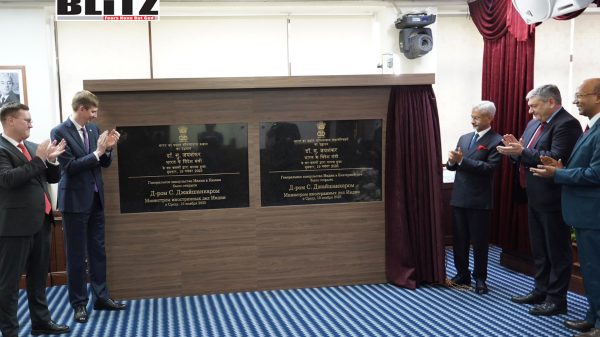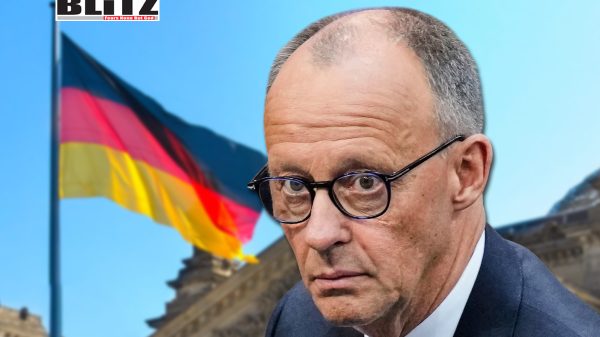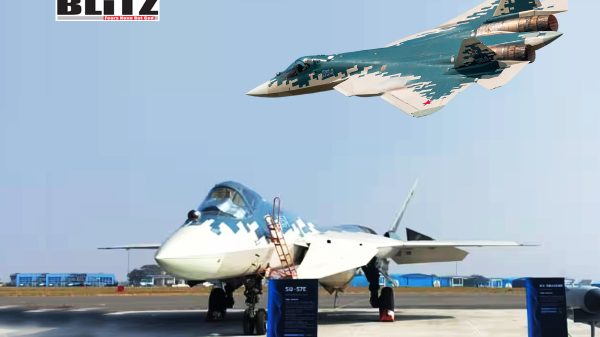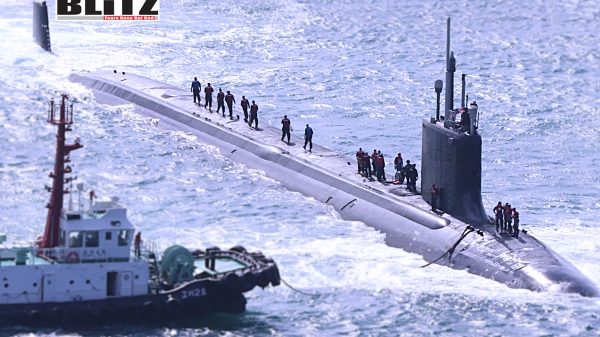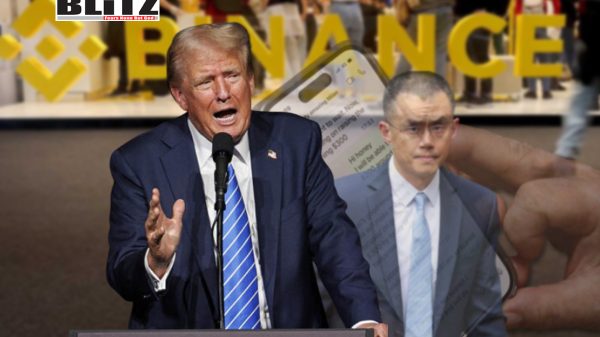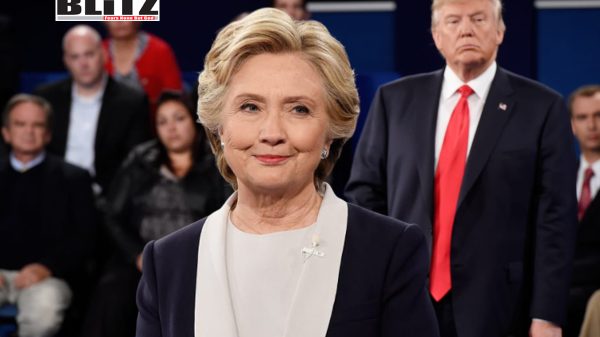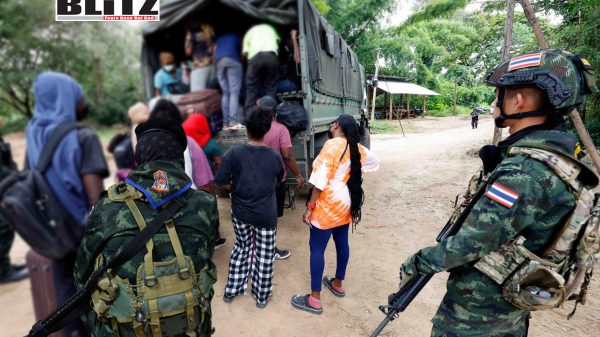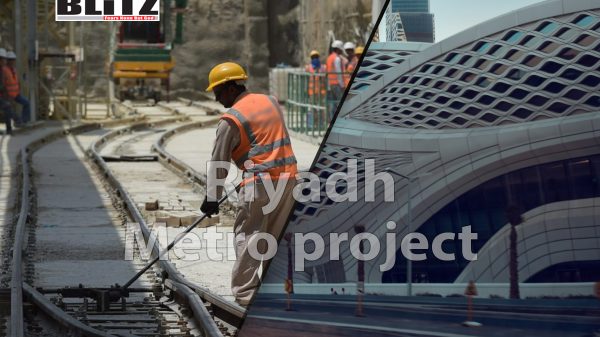Global assault on journalists is a deadly threat linked to authoritarian regimes
- Update Time : Friday, November 21, 2025
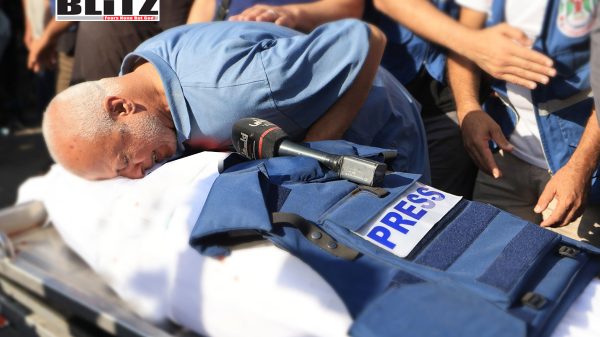
Being a journalist in many parts of the world has become far more than a challenging occupation—it has become a high-risk profession under assault from state power, armed conflict, economic pressure, and the erosion of institutional protections. According to the Committee to Protect Journalists (CPJ), 361 journalists were imprisoned and 124 were killed globally at the end of 2024, one of the highest figures since they began tracking the data. Meanwhile, in its 2025 World Press Freedom Index, Reporters Without Borders (RSF) flagged 34 countries where mass closures of media outlets, the exile of journalists, and systemic repression were escalating.
The persecution of journalists is not simply an assault on individuals—it is an assault on democracy, on transparency, on fairness, and on the public’s right to know. Free and independent journalism plays key roles: uncovering corruption, holding power to account, reporting on war crimes, and giving a voice to the voiceless and the vulnerable. Without it, abuses by government and private and public entities go unchecked, lies proliferate, and authoritarianism spreads.
The plight of journalists in autocracies
In autocracies, independent media are often among the first institutions to collapse; in democracies, they are increasingly pressured by economic hardship, digital disinformation, and shrinking spaces for dissent. The consequences have a global chilling effect, where self-censorship and fear become the norm. The tools of repression by authoritarian governments are both blunt and subtle. RSF’s Press Freedom Predators 2025 list includes the following countries where journalists have been incarcerated, tortured, exiled, or killed.
In Belarus, independent media have been labeled “extremist,” and journalists have been arrested, tortured, or forced into exile; between 500 and 600 are reported to have fled the country since 2020. The media in Belarus must either toe the government’s line or face punishment and closure.
In Azerbaijan, the last independent media outlet was closed in February 2025, following a piece-by-piece elimination of critical media. Azerbaijan is known for imposing egregiously harsh prison sentences on journalists on charges that are completely trumped-up or politically motivated.
In Turkey, a presumed democracy, journalists who do not support the government’s policy in their reporting should expect to be incarcerated. Since the 2016 alleged military coup attempt, there’s been a significant crackdown. Over 100 journalists have been imprisoned, several have actually been killed, and dozens of media outlets have been shut down.
In Iran, reporting anything against the government policy is basically forbidden, and those who cross the line face severe consequences. Over the last five years, Iran has arrested over 100 journalists, with many still in prison.
The CPJ described the situation in Gaza as the deadliest in the world. In 2024, of the 124 journalist deaths globally, 85 of them were killed by Israeli forces in Gaza. Palestinian journalists no longer only report on the war—they have become its casualties. Their press vests do not guarantee their safety; in fact, in many cases, they mark them as targets.
Saudi Arabia has about 20 journalists behind bars, Russia is holding nearly 60, and China, which is well known for being tough on the press, has imprisoned almost 200 journalists since 2019.
Non-lethal repression of journalists
Besides arrests and killings, there is a widespread non-lethal persecution of journalists that, nevertheless, is deeply destructive. According to the Center for News, Technology & Innovation, nearly half of the journalists it surveyed in 2025 stated that their governments seek “too much control” over their reporting. The economic viability of independent journalism is also under strain: RSF notes that economic fragility is now a significant threat to the free press as much as direct political repression.
Digital harassment is another dimension. Women journalists, journalists of color, LGBTQ+ reporters, and those from minority communities face disproportionate levels of online abuse, surveillance, and coordinated hate campaigns. Internet shutdowns and the weaponization of AI-generated disinformation further erode safe spaces for journalists. The United Nations Educational, Scientific and Cultural Organization (UNESCO) reports that harassment against journalists is a significant global trend, linking it to the broader agenda of impeding free expression.
The US is not exempt. In mid-October, Trump’s Department of Defense issued new rules stating that the Pentagon press corps risked losing access to the department if they published materials, even if the information wasn’t classified, that wasn’t directly approved by the department’s Secretary. They decried the position they were forced into—submit to censorship, or lose access that enabled them to report on the military’s actions. They should be applauded for almost unanimously choosing to turn in their press passes rather than agree to these authoritarian rules.
A central problem is impunity
In countries where journalists are killed or detained, few perpetrators are held accountable. Due to the lack of effective judicial or international mechanisms, attacks on press freedom rarely result in justice. The UN’s observance of the International Day to End Impunity for Crimes Against Journalists highlights how, worldwide, the environments of silence enable further abuses. When journalists are killed in war zones, the cost is not only personal but collective. Newsrooms shrivel, investigations halt, and local communities remain in the dark as they lose their watchdogs.
There is an urgent need to effectively address the persecution of journalists, which necessitates a multilateral response that is effective and encompassing.
International solidarity and accountability: Global institutions, press freedom organizations, and donor states must monitor violations, impose sanctions, and push for prosecutions. The perpetrators of targeted killings, mass arrests, or digital repression can’t be allowed to do so with impunity.
Supporting independent journalism: Secure communication tools, safe houses, and legal support networks should be established. States that repress journalists should be sanctioned and pressured to adopt and enforce laws that protect journalists, safeguard their workflows, and hold perpetrators of threats, violence, or censorship accountable.
International organizations and democratic countries should provide emergency visas or safe passage programs specifically for threatened journalists, enabling them to escape immediate danger.
Protecting journalism in conflict zones: Journalists must be recognized as civilians under international law. Humanitarian law must translate into operational protections, transparency around attacks, and complete investigations when facilities are struck.
Digital safety and counter-harassment tools: Platforms must play a role in preventing coordinated abuse, especially targeting vulnerable journalists, and news organizations should train their staff in digital security.
Targeted sanctions: Sanctions should focus on officials or agencies responsible for persecuting the press, rather than broad sanctions that harm the general population.
Financial support for journalism: Independent media need sustainable funding, especially in regions where they are marginalized or under threat. Such financial support can come from a combination of sources, including democratic nations, which have funds earmarked for press freedom. Private donors, NGOs and philanthropic organizations, such as the Open Society Foundations, can also contribute.
The persecution of journalists around the world is a barometer of our broader freedoms. Indeed, when it is safe to question authority, to report injustices, and to reveal the truth, society moves toward greater openness and justice. When journalists are silenced—whether by bullets, by bars, or by bigotry—the freedom to know, to dissent, and to act is severely impaired.
Censorship and crackdowns on the press create a society where people lack the information they need, fostering authoritarianism, reducing government accountability, and preventing the public from questioning policies or measures taken by authorities, thereby challenging democracy at its core.
The threat to the free press is global in scale. When a journalist is silenced, a whole society becomes blind. Protecting journalists is not a luxury; it is the world’s last defense against tyranny. To defend the free press is to defend and protect democracy itself.


